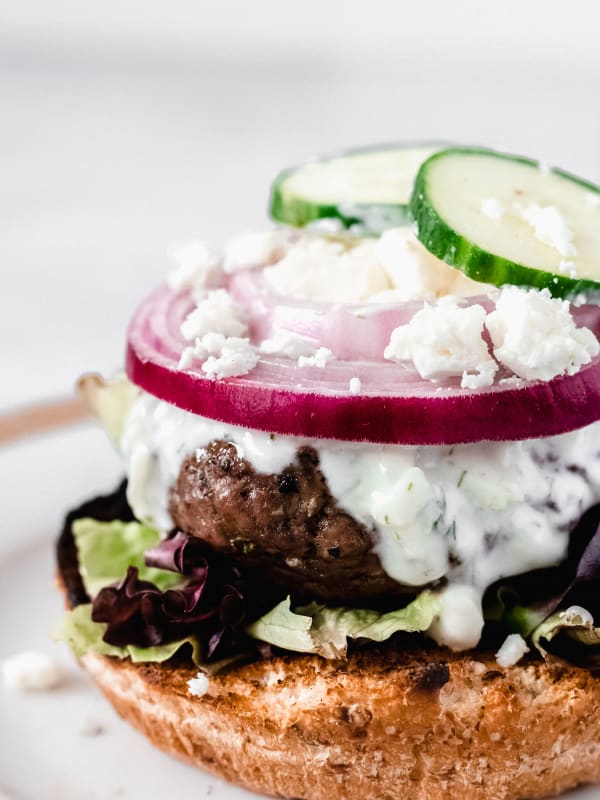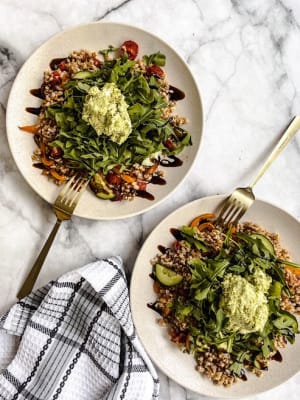Saturated Fats: Not So Bad After All?

Saturated Fats: Not So Bad After All?
Exploring the truths and myths of saturated fats in our diet.
We have all heard that saturated fat will clog our arteries and shorten our lifespan. And to this day in 2024, neither the American government's MyPlate suggestions nor the Canada Food Guide mentions healthy fats, let alone the dreaded saturated variety.
But what are saturated fats, and are they really so bad? Well, not necessarily.
Saturated fats make up half of all the fats in breast milk. This is no accident. The baby needs them because they are a significant structural component of cell membranes all over the body, accounting for roughly 50 per cent of all fats there.
Those cell walls are mostly made of fat, and the balance of lipids that comprise them is critical for the cell to properly communicate with its neighbouring cells, release toxins, and absorb nutrients appropriately. Aside from saturated fats, this means having a healthy amount of polyunsaturated fats like omega 3s and 6s, monounsaturated fats, and cholesterol in the mix. Generally, our diet will determine what fats make up those membranes.
Saturated fat molecules are like straight chain-linked sticks, and the primary difference between various saturated fats is their length (or the number of links in the chain). Aside from their use in cell membranes, assorted lengths of saturated fats are used regularly on the tissue level by the lungs, liver, heart, bones, and even our immune and endocrine (hormone) systems to function.
Medium chain triglycerides, the coconut-derived 'energy fats' that have made Bulletproof coffee so fashionable, are indeed a type of saturated fat. Medium and short chain saturated fats like those found in butter and coconut oil are not employed structurally but rather burned in the mitochondria like firewood to produce cellular energy.
Various lengths of saturated fat will function differently. Still, whether they are short, medium, or long chains, none are junk—the body uses them and handles them efficiently, even in large amounts.
So what's the problem? Why would anyone think that saturated fats are something we should edit out of the picture?
The dominant perception of saturated fats not as a natural physiological occurrence regenerated by diet but rather as a kind of poison if consumed in excess goes back to a school of thinking over 150 years old, the lipid hypothesis.

The Lipid Hypothesis
Saturated fat has been lumped in with cholesterol by the lipid hypothesis that these so-called bad fats contribute to, or even cause, cardiovascular disease.
This theory emerged in the United States in the 1850s, but it wasn't until over a hundred years later that it was popularized by the work of a nutritionist and researcher named Ancel Keys.
A famous study instigated by Keys in 1958 compared the rates of coronary heart disease in seven countries related to their dietary intake of saturated fat. In doing so, the study showed a link between those who ate more of it and higher rates of heart disease. A few more subsequent studies confirmed this finding, and by the 1970s, it was firmly implanted in the American mind that margarine was butter's healthy alternative.

Counter Evidence
Within the scientific community, the seven countries that studied themselves would be criticized for leaving out countries that didn't support the hypothesis. In the past 50 years, however, more and more science has refuted the claim that eating saturated fat causes arterial thickening or obstruction—much more than ever supported the theory in the first place.
In 2010, the American Journal of Clinical Nutrition published a meta-analysis of 21 studies involving over 347,000 participants observed for five to as many as 23 years. After aggregating all this data, the review concluded that "intake of saturated fat was not associated with an increased risk of coronary heart disease, stroke, or cardiovascular disease."
Even more impressive, an enormous 2017 Lancet study of 135,000 people conducted over seven years found that diets high in saturated fat actually reduced stroke risk by 20 per cent.
They were not associated with any increased risk of heart disease or myocardial infarction whatsoever. Meanwhile, all-cause mortality increased by 20 per cent in the high-carb group, placing much more suspicion around refined carbohydrates than fats altogether.
Natural Infatuation
In many ways, the renaissance of heightened appreciation for healthy fats that we live through now is merely the revival of a way of thinking and eating that reigned supreme before the lipid hypothesis ever darkened our doorway.
You may still not be convinced that liberal amounts of saturated fat are safe to enjoy. But at the very least, there is undoubtedly a conversation around it. Limiting your intake may be one way of splitting the difference and getting the best of both worlds.
Nevertheless, it is high time we stop vilifying foods like ghee, butter, coconut oil, coconut cream, and fatty meats for their saturated fat content and allow them to enjoy the respect they deserve as traditional ancestral foods fully deserving their place in a healthy modern lifestyle.
Ancel Keys - Seven countries study: The first study to relate diet with cardiovascular disease. Seven Countries Study | The first study to relate diet with cardiovascular disease. (2019, December 11). https://www.sevencountriesstudy.com/about-the-study/investigators/ancel-keys/
Dehghan, M., Mente, A., Zhang, X., Swaminathan, S., Li, W., Mohan, V., Iqbal, R., Kumar, R., Wentzel-Viljoen, E., Rosengren, A., Amma, L. I., Avezum, A., Chifamba, J., Diaz, R., Khatib, R., Lear, S., Lopez-Jaramillo, P., Liu, X., Gupta, R., Mohammadifard, N., … Prospective Urban Rural Epidemiology (PURE) study investigators (2017). Associations of fats and carbohydrate intake with cardiovascular disease and mortality in 18 countries from five continents (PURE): a prospective cohort study. Lancet (London, England), 390(10107), 2050–2062. https://doi.org/10.1016/S0140-6736(17)32252-3
German, J. B., & Dillard, C. J. (2010). Saturated fats: a perspective from lactation and milk composition. Lipids, 45(10), 915–923. https://doi.org/10.1007/s11745-010-3445-9
Link, R. (2024, January 16). Is saturated fat good or bad for you? separating myth vs. reality. Dr. Axe. https://draxe.com/nutrition/saturated-fat/#:~:text=Saturated%20fatty%20acids%20are%20absolutely,percent%20of%20most%20animal%20membranes
Perlmutter, D., & Loberg, K. (2019). Grain brain: The surprising truth about wheat, carbs, and sugar - your Brain's silent killers. Yellow Kite.
Siri-Tarino, P. W., Sun, Q., Hu, F. B., & Krauss, R. M. (2010). Meta-analysis of prospective cohort studies evaluating the association of saturated fat with cardiovascular disease. The American journal of clinical nutrition, 91(3), 535–546. https://doi.org/10.3945/ajcn.2009.27725





